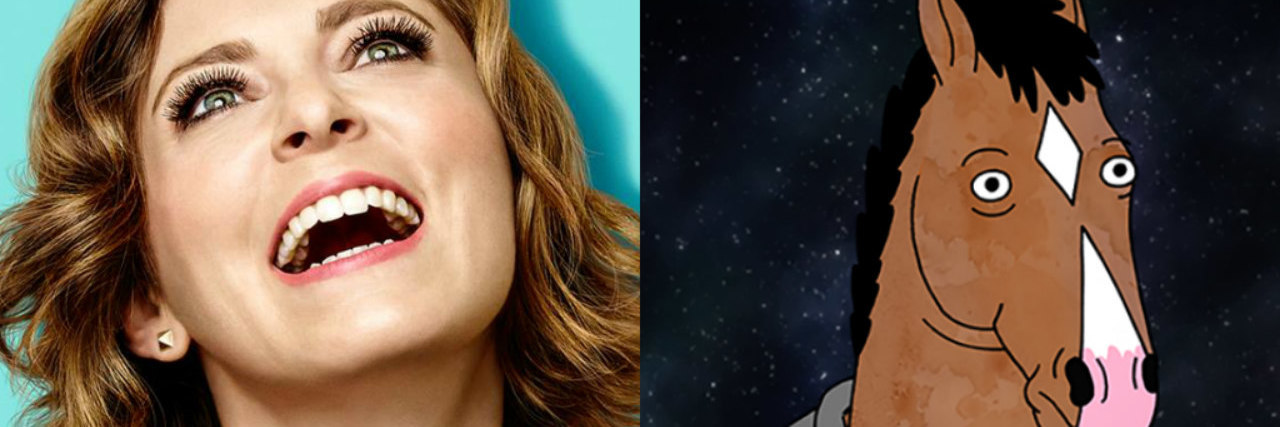The TV Shows That Have Been Doing a Good Job Addressing Mental Health
Recently the musical comedy “Crazy Ex-Girlfriend” gave its lead character, Rebecca, a diagnosis. The reveal was complete with a full broadway-style musical number after Rebecca finds out she has borderline personality disorder (BPD). She’d previously believed she had depression and OCD, and throughout the song, she lists a number of misdiagnoses she’s received over the years. As someone living with mental illness, it’s amazing to see the excitement of a diagnosis portrayed with such humor and authenticity.
She sings, “I’m aware mental illness is stigmatized, but the stigma is worth it if I realize, who I’m meant to be.” Those living with mental health-related issues often go undiagnosed out of embarrassment, as mental illness is often portrayed as an oddity or even villainous. Others keep quiet for fear of seeming weak. Viral memes like the overuse of the word #triggered, an appropriated phrase traditionally used by those with post-traumatic stress disorder (PTSD), have added to this stigmatization.
Though being diagnosed makes it easier to be treated (usually with therapy or medication), there’s also a freedom that comes with getting help.
Studies show mental illness affects 1 in 5 adults in the United States. Untreated mental illnesses also increases the chance of an individual being affected by a chronic illness.
“Crazy Ex-Girlfriend” is the second women-lead comedy series this month to cover mental illness in a comical way. Comedy Central’s “Broad City” revealed one of its lead characters, Ilana, struggles with seasonal affective disorder. More than three million U.S. citizens are affected by the disorder yearly, which can also intensely affect those already living with depression or other illnesses. The prescription is often a specific lamp, so bright it replicates raw sunlight.
Being an outrageous and often over-the-top comedy, “Broad City” played this up, having Ilana cling to her lamp, refusing to be away from it for even a second. Throughout the episode, the effects of it wear off and Ilana will fall into a dreary stupor that audiences living with depression will really relate to. Yet, the episode manages to make it funny, while also relatable and authentic.
Both series work to break stigma and make it a bit less scary than it can be to those living with these illnesses. Seeing these depictions in light-hearted comedies is a new change for the media’s interpretation of mental illness. Oftentimes the only representation of those with mental illness are inaccurate or villainous roles like in M. Night Shyamalan’s controversial movie, “Split.”
Though in recent years a few series have been putting out authentic portrayals of mental health. The Netflix animated series “Bojack Horseman” covers depression continuously in ways that are so raw and authentic it’s surprising it’s branded as an animated comedy. The use of anthropomorphic animals and animal-related puns are the only thing that keep it from getting a little too dark. And last year, the LGBTQ comedy “Please Like Me” introduced the suicide of a main character, shaking up the tone of the whole series, which had already included characters affected by depression.
As someone living with depression and anxiety, I often find myself terrified of people finding out, and that I’ll be treated differently for it. Though seeing these depictions on mainstream television filled with humor and authenticity give me hope that we may break the stigma.
If you or someone you know needs help, visit our suicide prevention resources page.
If you need support right now, call the National Suicide Prevention Lifeline at 1-800-273-8255 or text “START” to 741-741.
We want to hear your story. Become a Mighty contributor here.
Photos via “Crazy-Ex Girlfriend” and “Bojack Horseman” Facebook pages

